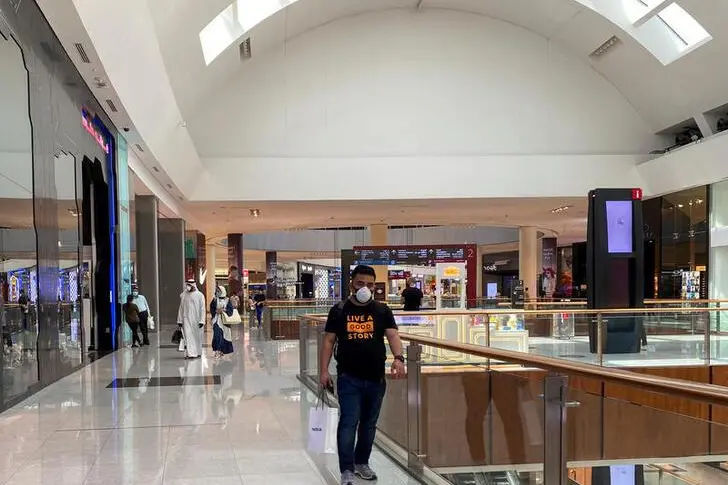PHOTO
A large number of households in the UAE have managed to cut their expenses and boost their savings during the coronavirus pandemic, indicating a significant alteration of spending habits.
A survey commissioned by Kearney Middle East has found that 40 percent of people in the country have seen their cash reserves increase over the past few months. Since the onset of the pandemic, many have chosen to work from home and have avoided going out, leading to significant savings on the money that might have been spent on transportation, eating out, movies or impulse shopping.
As a result, overall consumer spending in the country plummeted, particularly during the lockdown period. According to Euromonitor International, luxury goods, beauty and personal care, apparel, footwear, eyewear and accessories declined most significantly.
UAE Central Bank data also shows that residents’ bank deposits went up by nearly 3 percent, to 1,662.6 billion UAE dirhams in May, compared to 1,615.9 billion in January.
BIGGEST SAVERS
Kearney’s study found that most of the residents who saved during the period appear to be concentrated in the high-income bracket. Forty-seven percent of the polled respondents earning more than 40,000 UAE dirhams said that they had increased their savings during the period, followed by 43 percent among those earning between 20,000 and 40,000 dirhams; 41 percent, between 10,000 and 20,000 dirhams; and 39 percent, between 5,000 and 10,000 dirhams.
Conducted by market research firm YouGov, the survey covered more than 1,000 residents in the UAE. The study also explored personal wellbeing as well as economic and professional behaviours that people have tried to improve during the past few months.
OTHER FINDINGS
Overall, 62 percent of the respondents said that they have experienced a significant or complete change in their lives during the pandemic.
In terms of work behaviour, 32 percent of the respondents reported that they spent more time attending online conferences and webinars, while 36 percent searched for new job opportunities.
Due to remote working, 38 percent of the respondents have adopted digital telecommunication tools, and 34 percent said they work more days from home compared to before the pandemic broke. Forty-one percent of those surveyed have avoided using cash during the pandemic in favour of cashless transactions.
“The social and behavioural change we see today is unlike anything we have seen before. The pandemic has not only encouraged personal change but also spurred changes in some longstanding social constructs,” said Andreea Zugravu, principal at government and economic development at Kearney Middle East.
“The survey results reveal that despite the challenging situation, people have been motivated to improve their habits and behaviours, which if sustained can have long-lasting implications for UAE society,” Zugravu added.
(Reporting by Cleofe Maceda; editing by Seban Scaria)
Disclaimer: This article is provided for informational purposes only. The content does not provide tax, legal or investment advice or opinion regarding the suitability, value or profitability of any particular security, portfolio or investment strategy. Read our full disclaimer policy here.
© ZAWYA 2020





















